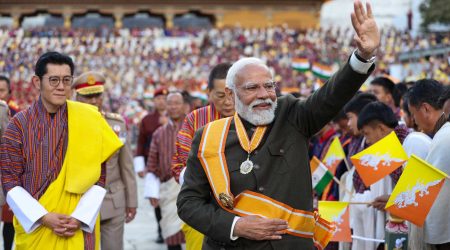Washington: Observing that the USCIRF’s recent annual report that criticized India for alleged violations of religious freedom is based on omission and commission of facts utilizing partial data, an Indian diaspora think-tank has urged the US State Department to reject it.
In a statement on Thursday, the Foundation for India and Indian Diaspora Studies (FIIDS) characterized the USCIRF report as biased, presenting partial data and flawed conclusions.
Khanderao Kand, Chief of Policy and Strategy at FIIDS, stated that the USCIRF report is based on “omission and commission of facts, utilizing partial data, hiding the full context, generalizing isolated incidents, and questioning the implementation of the law of the land.” “This report used partial and isolated incidents to wrongly brand the largest democracy in the world with a population of 1.4 billion, missing the opportunity to indicate positive recent trends against the background of a complex and violent past history,” he said.
Khanderao added that the USCIRF is wrong to recommend the largest democracy and largely peaceful civilization as a country of particular concern.
“Moreover, it is highly questionable recommendation asking to evaluate India under FATF (Financial Action Task Force), especially when India itself has been a target of terrorism,” he said.
In a detailed analysis of the report, FIIDS said that USCIRF’s position on India contrasts with its analysis of 2023, indicating significant year-over-year improvement.
FIIDS’ analysis concluded that the Manipur riots were inter-tribal, resulting from historical rivalry exploited by drug mafias and Myanmar infiltrators, impacting all religions.
“However, the USCIRF only singled out Christians. Moreover, we contrasted this with the position of the Archbishop of Bombay,” said FIIDS’s analyst Mohan Sonti.
“The report wrongly held India responsible for implementing the Foreign Contribution Regulation Act (FCRA), preventing illegal and improper use of foreign funding. Why can’t NGOs follow reporting and usage laws?” he asked.
The USCIRF report failed to mention India’s constitutional guarantee to freedom of religion, with prohibitions on coercive, fraudulent and forced conversion, he said.
“Instead, it complained about the enforcement of laws trying to protect gullible, underprivileged people,” he added.










